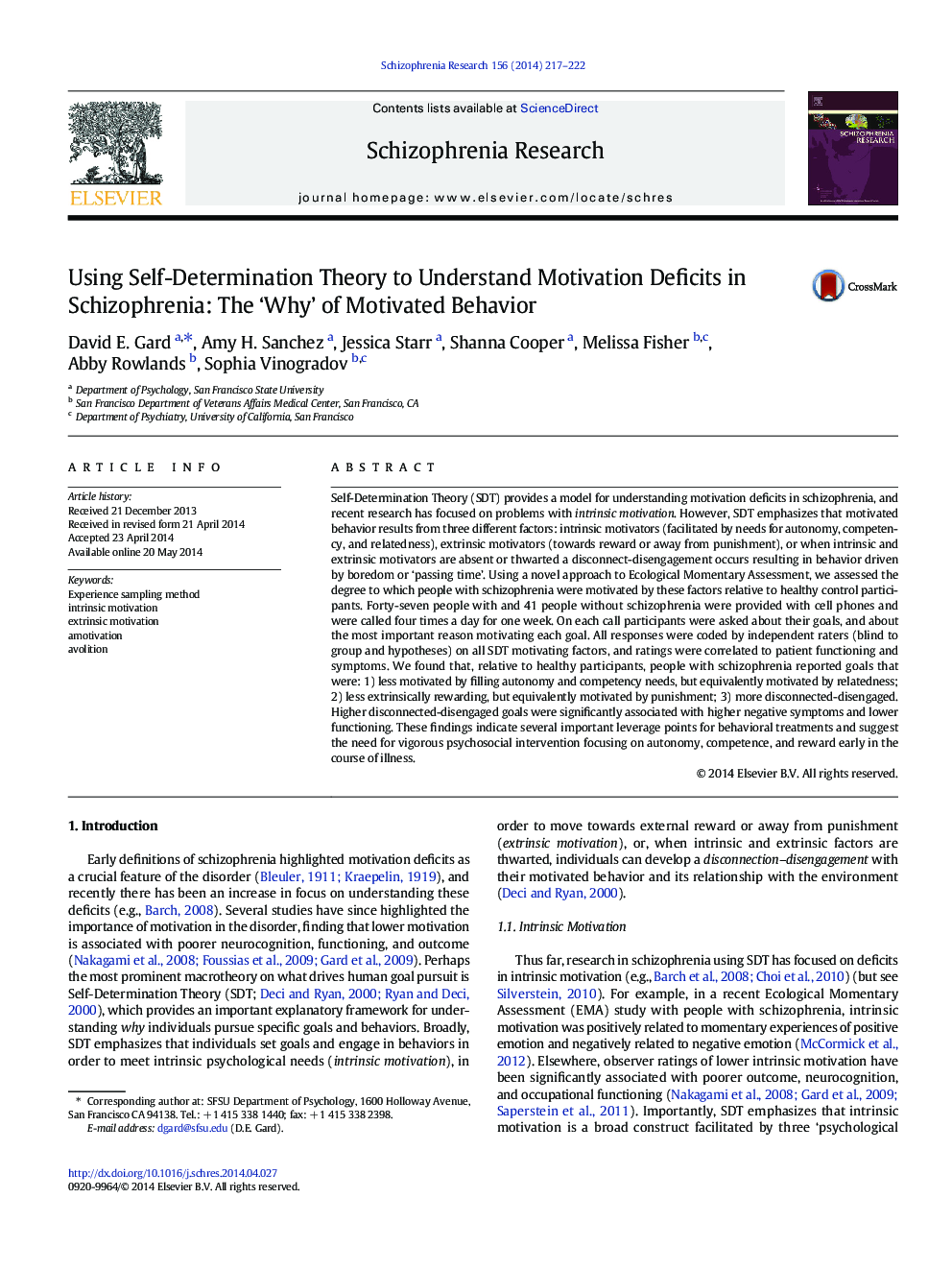| کد مقاله | کد نشریه | سال انتشار | مقاله انگلیسی | نسخه تمام متن |
|---|---|---|---|---|
| 6825079 | 548082 | 2014 | 6 صفحه PDF | دانلود رایگان |
عنوان انگلیسی مقاله ISI
Using Self-Determination Theory to Understand Motivation Deficits in Schizophrenia: The 'Why' of Motivated Behavior
ترجمه فارسی عنوان
با استفاده از نظریه خودتنظیمی برای درک نقایص انگیزشی در اسکیزوفرنی: "چرا" رفتار انگیزشی
دانلود مقاله + سفارش ترجمه
دانلود مقاله ISI انگلیسی
رایگان برای ایرانیان
کلمات کلیدی
روش نمونه گیری تجربه، انگیزه ذاتی، انگیزش بیرونی، تحریک انفجار،
موضوعات مرتبط
علوم زیستی و بیوفناوری
علم عصب شناسی
علوم اعصاب رفتاری
چکیده انگلیسی
Self-Determination Theory (SDT) provides a model for understanding motivation deficits in schizophrenia, and recent research has focused on problems with intrinsic motivation. However, SDT emphasizes that motivated behavior results from three different factors: intrinsic motivators (facilitated by needs for autonomy, competency, and relatedness), extrinsic motivators (towards reward or away from punishment), or when intrinsic and extrinsic motivators are absent or thwarted a disconnect-disengagement occurs resulting in behavior driven by boredom or 'passing time'. Using a novel approach to Ecological Momentary Assessment, we assessed the degree to which people with schizophrenia were motivated by these factors relative to healthy control participants. Forty-seven people with and 41 people without schizophrenia were provided with cell phones and were called four times a day for one week. On each call participants were asked about their goals, and about the most important reason motivating each goal. All responses were coded by independent raters (blind to group and hypotheses) on all SDT motivating factors, and ratings were correlated to patient functioning and symptoms. We found that, relative to healthy participants, people with schizophrenia reported goals that were: 1) less motivated by filling autonomy and competency needs, but equivalently motivated by relatedness; 2) less extrinsically rewarding, but equivalently motivated by punishment; 3) more disconnected-disengaged. Higher disconnected-disengaged goals were significantly associated with higher negative symptoms and lower functioning. These findings indicate several important leverage points for behavioral treatments and suggest the need for vigorous psychosocial intervention focusing on autonomy, competence, and reward early in the course of illness.
ناشر
Database: Elsevier - ScienceDirect (ساینس دایرکت)
Journal: Schizophrenia Research - Volume 156, Issues 2â3, July 2014, Pages 217-222
Journal: Schizophrenia Research - Volume 156, Issues 2â3, July 2014, Pages 217-222
نویسندگان
David E. Gard, Amy H. Sanchez, Jessica Starr, Shanna Cooper, Melissa Fisher, Abby Rowlands, Sophia Vinogradov,
